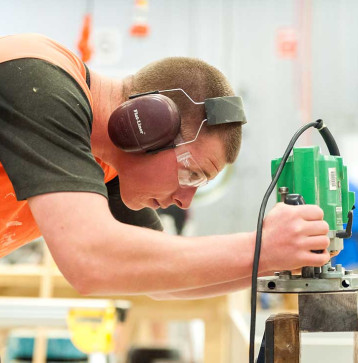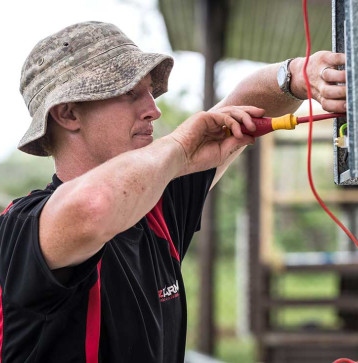
Plumber
Skip to section:
About the role Career progression and training Salary and benefits Entry requirementsGet unrivalled training, trade qualifications and a diversity of experience that few plumbing careers or apprenticeships offer.
- ServiceArmy
- SpecialisationApprenticeship Trades
- LocationLinton
-
Starting Trade Training$64,177
About the role
As a Plumber, Gasfitter and Drainlayer in the Army, you will work on a huge variety of tasks and equipment from providing amenities in camps and bases to assist in repairing damaged buildings. You will earn trade certified qualifications and be called upon everywhere the Army goes.
The New Zealand Army has many installations and camps around the country, and often is deployed on humanitarian and peacekeeping missions around the world. All of these places require plumbers to ensure the amenities function properly. You will be provided with all the tools and the knowledge required to complete any task set for you. You will have all the skills of a civilian plumber, with the added training afforded to a soldier in a modern army.
Job on base
The role of a Plumber, Gasfitter and Drainlayer on camp is to conduct new work and routine maintenance of existing and new camp facilities. Plumbers are called upon for a variety of tasks including inspection and replacement of pipes to installation and fit out of construction tasks.
As well as your day to day plumbing responsibilities you will also continue your soldier training including weapons, medical, communications and combat engineer training.
Job on deployment
A vital role of Plumbers in the Army is assisting with the initial construction and maintenance of plumbing, gasfitting and drainlaying facilities of deployed camp facilities.Plumbershave been deployed supporting small contingents around the globe. Places they have previously been deployed include Antarctica, Mozambique, Timor Leste, Australia, South Pacific Islands, Bosnia, Afghanistan and Iraq.
Career progression and training
Career Progression
Job Training
Ongoing Training
Basic training
As you progress through your career you will get the opportunity to gain foreman and senior project manager qualifications related to your trade.
In time you will be eligible to be posted to Burnham or even back to the School of Military Engineering as one of the plumbing instructors.
BASIC COMBAT ENGINEER COURSE
This is an eight week course held at the School of Military Engineering, Linton Military Camp. This is the first course conducted for most trades within the Royal New Zealand Engineers. It introduces you to the combat side of being an engineer before you undertake your specific trade.
The course covers the basics of field engineering including bridging, water supply, explosives, field defences, obstacles, booby traps, boating and other subjects. After the course, you will have a good understanding of field engineering and also be qualified as an Army (explosives) Demolition Handler.
THE APPRENTICESHIP
The plumbing, gasfitting and drainlaying apprenticeship takes about five years to complete. During the period, you will attend five three-week courses at WelTech. You will be taught a combination of theory and practical skills, and assessed on what you have learned as required by the New Zealand Qualifications Authority.
At the completion of your apprenticeship, you will have gained a National Certificate in Plumbing, Gasfitting and Drainlaying. The next step is to sit the advanced Trade Certificates exams (known as Craftsman exams). Within five years, you could be a Craftsman Qualified Plumber and Gasfitter. You may also be able to attend advanced courses on water sanitisation and reticulation.
As a Plumber in the Army, you’ll qualify to NZQA recognized standards and will achieve your Plumber, Gasfitter and Drainlayer qualification.
Basic Training
Upon successful enlistment into the Army you will be posted to Waiouru Army base. Here you will do 16 weeks of basic military training to find out if you have what it takes to be in the Army, and learn various subjects including:
- Organisation and Administration
- Army Customs and Protocol
- Drill and Parades
- Military Field Skills and Weapon Training
- First Aid
- Physical Fitness
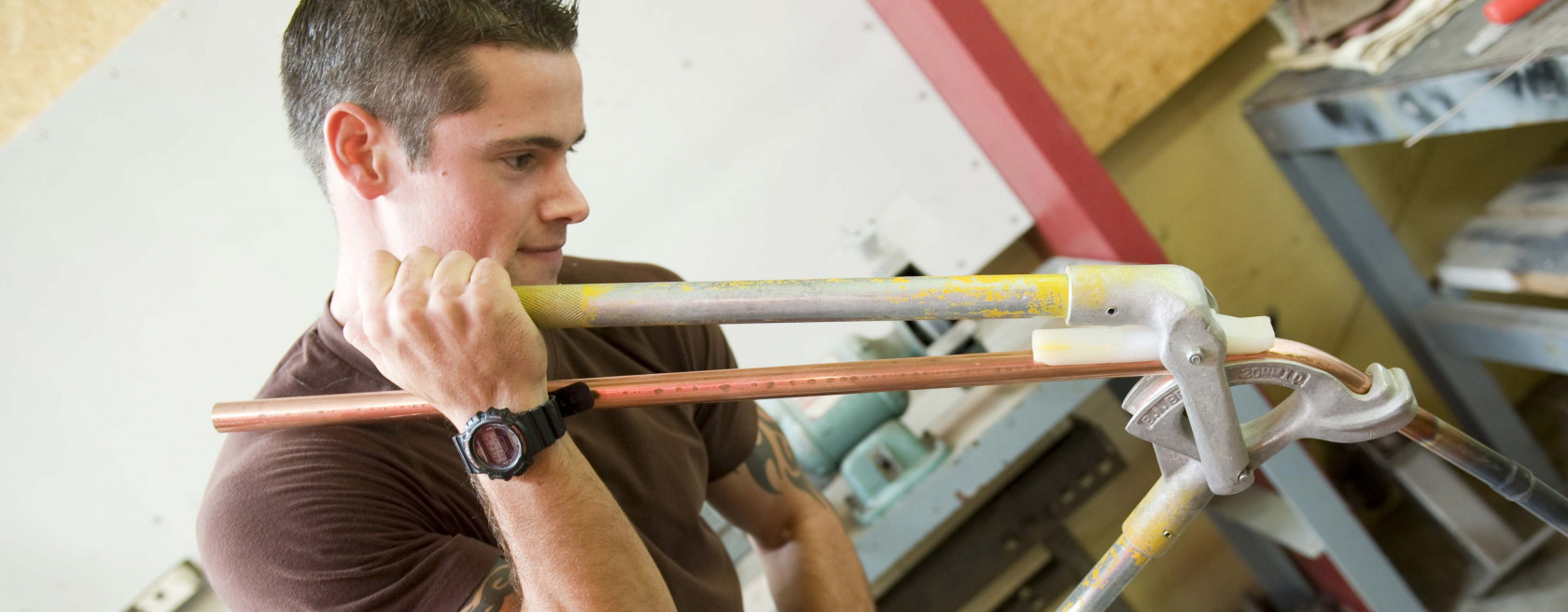
Salary and benefits
Careers in the Army are well-rewarded, diverse and exciting. As you become more experienced and move up through the ranks, gaining additional skills and qualifications, your salary will rise accordingly.
$50,597
Under Initial Training
$64,177
Starting Trade Training
$129,061
Future Potential Earnings
Figures updated on July 1st 2023
Benefits and allowances
Earn a competitive salary while training or learning your trade, along with additional allowances for time spent in the field, at sea, overseas, or deployed on operations.
In addition to salary and allowances, other benefits of joining the New Zealand Defence Force include:
Access to your Service marae or tūrangawaewae
Sponsored tertiary study programmes at all levels
Free access to gyms and swimming pools on camp and bases
Opportunities to travel
Free and subsidised medical and dental care
Subsidised food and accommodation on camps and bases
Free and subsidised insurance cover
Help to buy a home and save for retirement
Entry requirements
Basics
Education
Fitness and Medical
Citizenship
Period of Service
- You must be at least 17 years of age.
- Meet the citizenship and security requirements to gain CV security clearance for this trade.
3 years secondary school.
Note, that qualifications may be used to assess trade suitability.
- You must be medically fit for service.
- Colour perception restrictions may apply.
There are strict citizenship and security requirements to gain the required CV security clearance for this trade.
Find out if you’re eligible here.
Once you have completed training you will be required to give a two year return of service to the NZ Army.
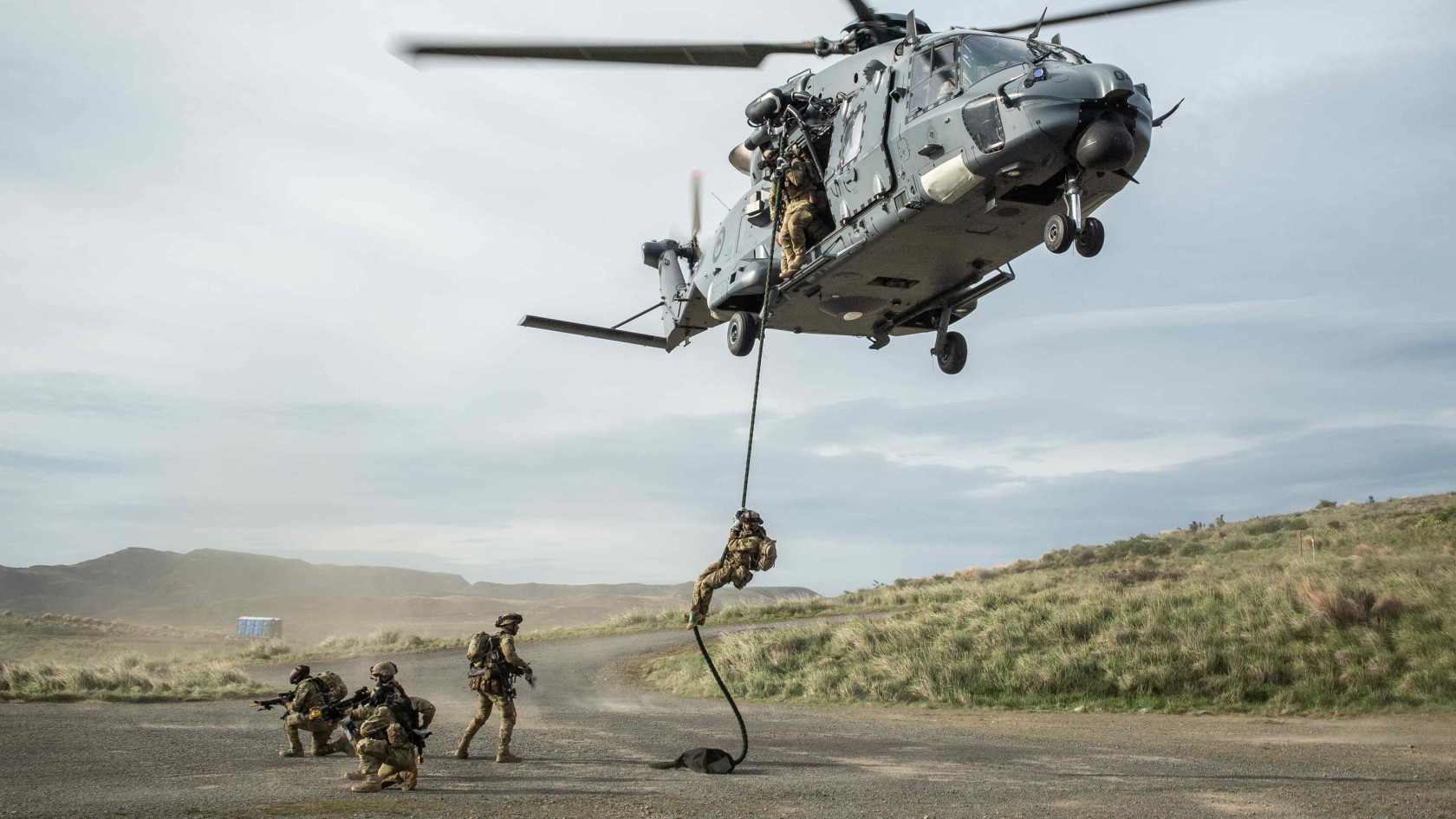
Ready to start your Army career?
Other jobs you might like
You can also browse jobs by specialisation to narrow down your search.
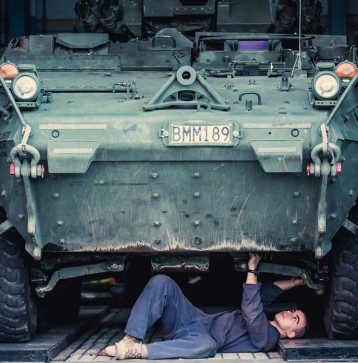
Applications Open
